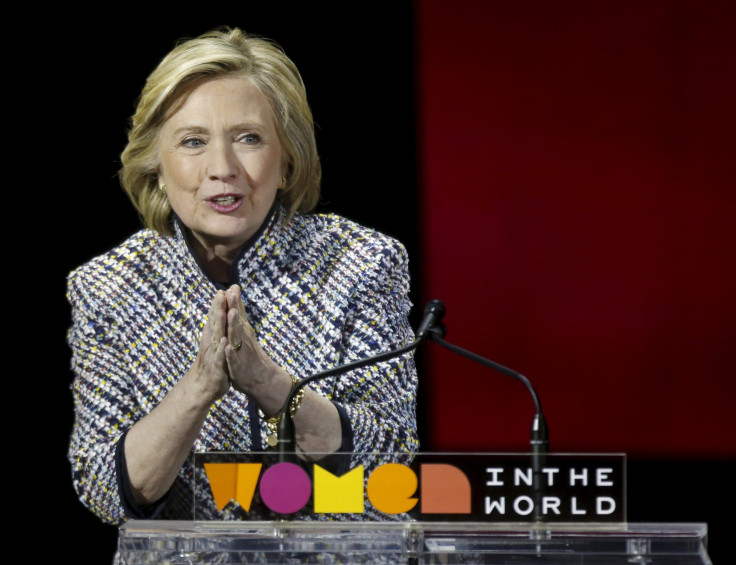Election 2016: Hillary Clinton Scandal Survival Plan; Will Foundation Cash Questions Keep Coming?

WASHINGTON -- Hillary Clinton didn't get much of a honeymoon. Only two weeks into her official presidential campaign, she's busy fending off critics who say donations to her family's foundation may have influenced decisions she made while secretary of state. What isn't clear -- yet -- is just how bad the heat will get. The foundation has existed for 14 years and accepted millions of dollars in donations, meaning there could be many more stories waiting to be unearthed.
How Clinton responds could affect whether the controversy accelerates or shrinks. And while political analysts don't agree on precisely what she should say or do, her options generally fall into one of two camps. Here's what those camps advise Clinton to do:
Camp 1's Advice: Change The Subject And Take Charge Of The Story
The Clintons are no strangers to controversy. Bill Clinton’s two terms in the White House were almost defined by scandal, yet he remains the most popular living former president. Hillary Clinton left the State Department as the most popular active politician in the nation -- despite Republican efforts to portray her response to the Benghazi consulate attack as at best a leadership failure and at worst a politically-motivated series of lies. Clinton opted not to engage Republicans in the fight then, choosing instead to just let the criticism fizzle.
But the public has different expectations of a presidential candidate than it does of a former first lady, former U.S. senator or the nation’s famously hard-working top diplomat. Clinton is already seeing the public’s view of her honesty and trustworthiness take a dip, a Fox News poll says.
Clinton should try to change the tone and the topic. She needs to tell her story in a way that emphasizes positives, said Samuel Popkin, a political science professor at the University of California, San Diego, and author of the book “The Candidate: What It Takes to Win -- and Hold -- the White House.”
“At this point she’s not going to ever gain control of the narrative until she stands up for a path that is strong enough so that everything doesn’t go through the wandering edges of her life,” Popkin said. “When I say particulars don’t matter, I’m not denying the size of the problem. ... I’m saying you can only overcome this with a personal character that helps you to see what the real vision is and not the little things that happen on the way. You don’t define a Hall of Fame baseball player by the strikeouts.”
He pointed to Mitt Romney, who was never able to overcome the narrative that he was a wealthy guy who was out of touch with average people. Democrats used his time at venture firm Bain Capital and the companies that it overtook to argue he didn’t care about working people. “What he never did was explain to people how what he did at Bain could be good for people,” Popkin said. “I always expected [him] to get up there and say, ‘I know how to smell a company that has rotten parts and how you get rid of the rotten parts and make money.' "
Camp 2's Advice: Answer The Questions -- And Confront Your Critics
Clinton may be able to calm some of the concern among voters by answering more questions. A Quinnipiac poll released this week asked voters whether they thought Clinton had given satisfactory answers on the use of her personal email while secretary of state. The poll found 59 percent think questions remain and 53 percent of those polled support a congressional investigation into her use of email.
Her top spokesman Brian Fallon posted an essay on Medium that sought to debunk many of the accusations and went after Peter Schweizer, author of “Clinton Cash,” a book on the Clintons' finances that is due out May 5.
“As we've already seen, they have attacked Schweizer for being a partisan attack dog, etc. The strategy is to attack the messenger,” said Timothy Hagle, a political science professor at the University of Iowa. “They also have argued that this is old news, their foundation is transparent, these are just political attacks, and so on.”
© Copyright IBTimes 2024. All rights reserved.












